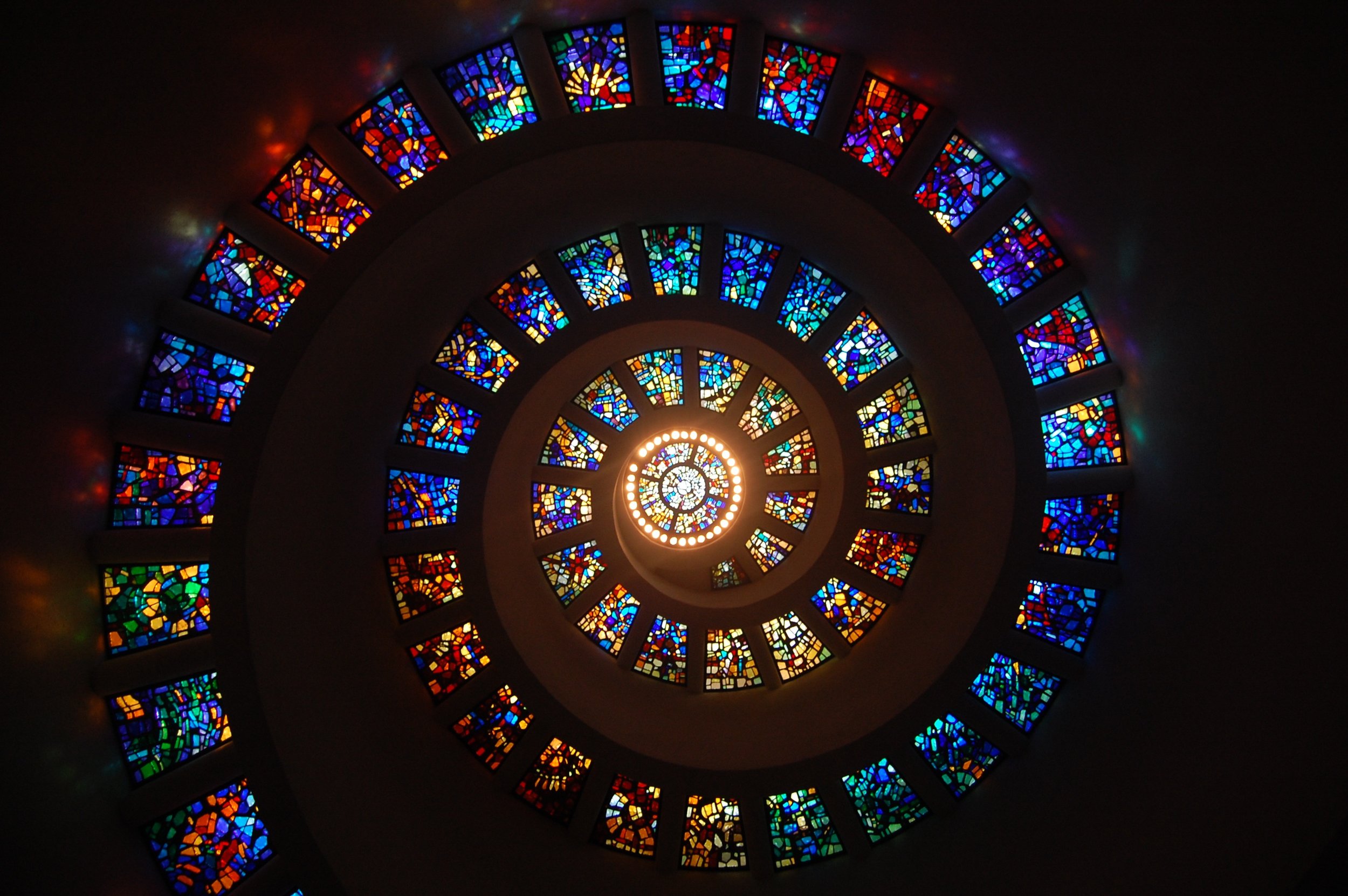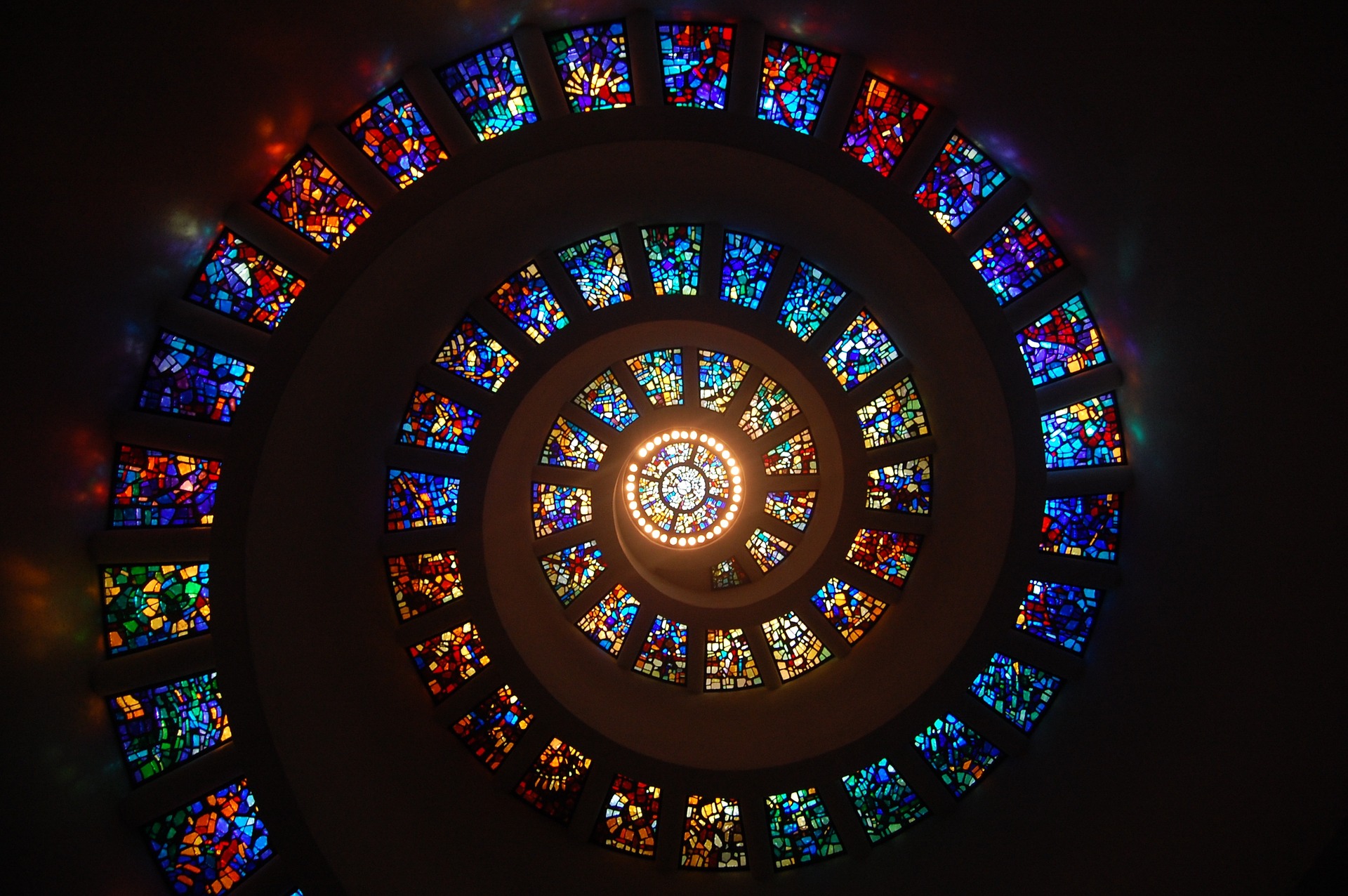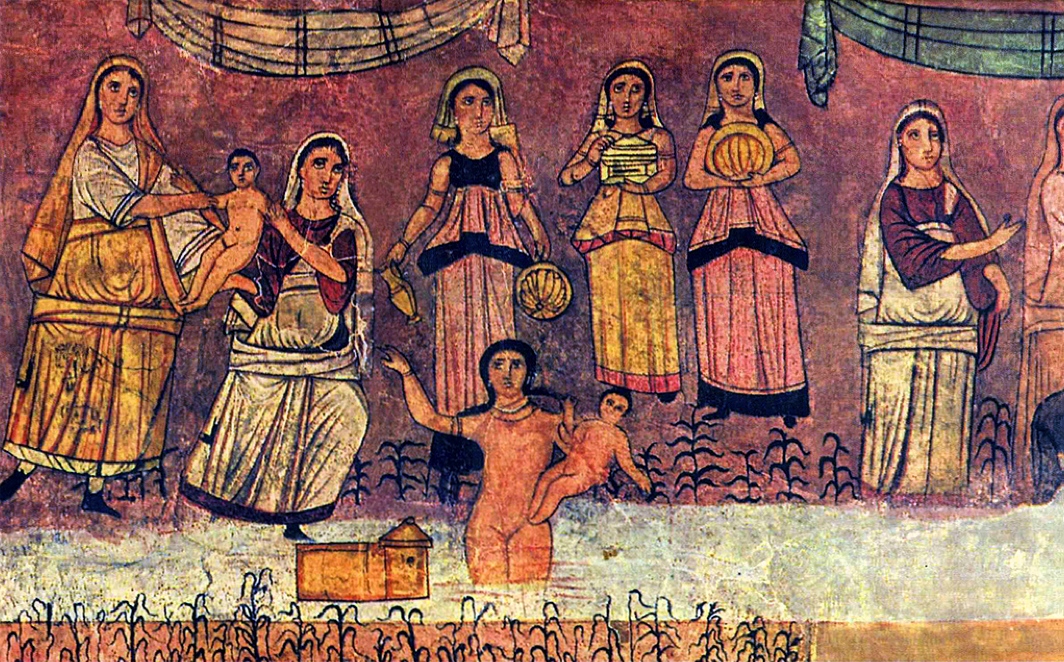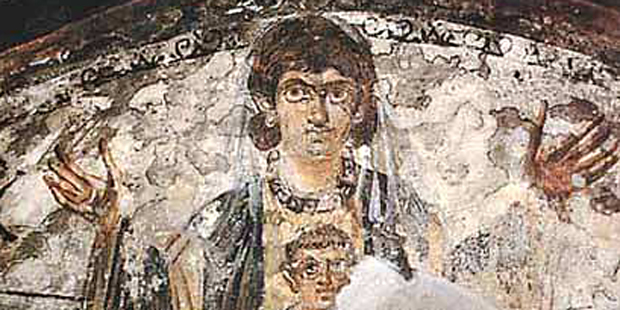Making Sense of the Supernatural
Photograph: The stained glass spiral of the Glory Window in the Thanksgiving Chapel in Dallas, TX. Photo credit: msandersmusic | Pixabay.
People across the world report encountering the supernatural. This page explores how to reason your way through it all.
Messages and Resources on Making Sense of the Supernatural
The Angels Around God’s Throne: A Glimpse
This is a message from Ezekiel 1:1 - 14 given by Mako Nagasawa at Trinity North Shore Church on September 29, 2024. It is part of Creationtide, a new Western Christian effort to honor God’s love for all creation. Ezekiel saw angels in God's temple: the four four-faced cherubim. How do we participate in what the cherubim represent? What do they mean for our sense of hope? Mako reflects on these angels, their role, our relationship to them, and what they teach us because they too are part of God's creation.
The Trinity: Can Other Gods Be Personally Known?
God is immanent and locatable; God is transcendent and not contained by His appearance; and God is the link between them. This is what makes God personally knowable.
Weird Coincidences, Supernatural Events, Funny Feelings - Is That You God?
A message about experiencing unusual things, and how to interpret them as a good God directing our attention to Jesus.
Athanasius as Evangelist: God Haunts and Calls Us Through Our Own Words
A blog post, Jan 22, 2018. A 10 minute read about how an early Christian leader, Athanasius of Alexandria (298 - 373 AD) recognized that language reaches into us; God uses words like “good and evil,” “beauty and ugliness,” “justice and injustice,” and so on, to remind us that there are larger moral categories into which we fit, and within which we are called to grow.
How Our Choices Shape Our Desires: Experiencing the Triune God
Text of a message from Genesis 1 - 2 and Proverbs 2, leading into questions for reflection and/or discussion. God made us to grow, and to develop our desires as we choose Him and the good He wants for us. This is why our desire to be more loving expands when we choose to be more loving, just as our palette is stretched when we eat more diverse food.
Text of a message which delves into the biblical story as the original happy ending story, and other happy ending stories as parodies that change the plot arc, villain, and hero. The message is accompanied by this chart. Another message like this is The Happy Ending — Will It Happen to Me? To Us? This message focuses on our experience of happy ending vs. non happy ending stories, and not on other religious traditions per se.
The Desire for a Happy Ending: Interpreting the Movies, Songs, and Stories Around Us
Slides to a presentation. We like happy ending stories because we long for an actual happy ending for the world. This workshop groups all belief systems into not happy ending vs. happy ending stories; and then internal vs. external villains.
Prayer: Why Does Speaking Words Change Reality? God's Four Responses to Prayer
Text and slides of a message about God responding to prayer in four ways: “yes”; “not yet”; “I have something better in mind”; and “I’m doing that but it depends on someone else.”
Text of a message that is a fuller treatment of the question of whether prayer changes God, and whether that affects how and when and why we pray. This message engages with a chart provided by Terrance Tiessen’s Providence and Prayer (IVP: Downer’s Grove, 2000). However, some in the “open theist” camp have said that the position advocated here fits within “open theism,” even though Tiessen did not initially categorize it that way.
Suffering and the Sovereignty of God's Word
A longer paper explaining how Scripture portrays God as acting by speaking, which is why God is only responsible for that which He has said. Meanwhile, God aims to heal the suffering of human nature in Jesus and by the Spirit. This means God is not causing human suffering.
Why Don't All Good Prayers Get Answered? (TBD)
Miracles and the Supernatural Outside of Christian Contexts (TBD)
Other Resources on Making Sense of the Supernatural
C.S. Lewis, The Problem of Pain. HarperOne | Amazon page, 1940.
C.S. Lewis, Miracles. HarperOne | Amazon page, 1947.
C.S. Lewis, "Meditation in a Toolshed", the difference between "looking at" and "looking along"
C.S. Lewis, "The Weight of Glory" and "Transposition" from The Weight of Glory and Other Addresses. HarperOne | Amazon page, 1949.
C.S. Lewis, "The Efficacy of Prayer" from The World's Last Night. Mariner Books | Amazon page, 1952.
C.S. Lewis, "On the Obstinacy of Belief" from The World's Last Night. Mariner Books | Amazon page, 1952.
Ron Tacelli, SJ, Divine Hiddenness: Pascalean Reflections
Kallistos Ware, Personal Experience of the Holy Spirit According to the Greek Fathers. Silouan Thompson blog, Aug 5, 2008.
T.M. Luhrmann, Addicted to Prayer? New York Times, Aug 3, 2013.
Kevin Allen, Unique Characteristics of Eastern Orthodox Spirituality. Conciliar Post, Apr 16, 2015.
BEC Crew, Space and Time and an Illusion. Science Alert, Apr 28, 2015.
J. Davila-Ashcroft, The Holy Angels. Paleo-Orthodoxy, Jul 28, 2016.
Brian Zahnd, The Fall of Satan. Word of Life Church, Jul 3, 2022. Zahnd suggests that “the Satan” is not an angelic person but a personalized amalgamation of sinful human desires that is given power by our desires and decisions, like how we give personal names to hurricanes. Zahnd then preaches stirringly against the sinful desires and decisions that we have and make, contrary to Jesus. But the notion that the full range of demonic entities described in Scripture are personalized amalgamations of sinful human desires runs into problems: the serpent in the garden could not have been the amalgamation of sinful human desires prior to sinfulness; the legion demon entered a herd of pigs, which is hard to interpret as human desires; etc.
Dr. Kat Lindley, Medical Benefits of Prayer. Twitter, Sep 28, 2023.
“Did you know? Johan Sebastian Bach lost his little daughter and then three sons and then his wife. Then he remarried and then he and his second wife, Anna-Magdalena, lost four more daughters and three sons. Eleven beloved children... Many researchers have wondered: how Bach managed to handle these losses? How did he not stop breathing, how did his heart not stop? And most importantly, how could he continue to write music? Kantati, cello suites, masses, concerts... The most beautiful music the world has heard. Do you know how he did it? At the end of the his music, he always wrote "Soli Deo gloria" (Glory to God alone) and in the beginning, "Lord help." Therefore, you can pray during Bach's music because the music itself is a prayer. You could, then, consider Bach's music a conversation between man and God. How do you deal with pain? Worship is the best solace."
Prayer is a considered a form of medicine, and it falls into the complimentary, alternative category. It has similar benefits to meditation. Praying increases release of dopamine. (As a side note, dopamine plays important roles in executive function, motor control, motivation, arousal, reinforcement, and reward through signaling cascades that are exerted via binding to dopaminergic receptors at the projections found in the substantia nigra, ventral segmental area, and arcuate nucleus of the hypothalamus of the human brain.) Prayer can calm your nervous system, shutting down your fight or flight response. It can make you less reactive to negative emotions and less angry. Prayer elicits the relaxation response, which lowers blood pressure and other factors heightened by stress. It also releases control to something greater than oneself through secondary control, which can reduce the stress of needing to be in charge. Prayer is a go to habit for stress management because it can improve release of testosterone and related androgen hormones such as DHEA. When we intently and consistently pray, we increase the blood flow to our frontal lobes and to our anterior cingulate, which causes the activity in the emotional centers of our brain to decrease. That helps us develop the capacity to make responses that maintain and even sense of peace. There is definitely skepticism out there about the healing power of prayer, but at the end of the day when your soul needs respite few words may make a difference.
David Brooks, The Shock of Faith: It’s Nothing Like I Thought It Would Be. New York Times, Dec 19, 2024. On epiphanies that led to the pursuit of God, on desire and longing, and the view of humans as co-creators with God. “I experienced an acceleration of those moments. This time they were not mere spooky experiences, but illuminations — events that tell us about the meaning of life and change the way we see the world…. When religion is seen as belief, then the believer lives on a continuum between belief and doubt. But when religion is seen as a longing, then the believer lives on the continuum between intensity and apathy… I’ve heard Christians say that our job is to take our hands off the wheel and let God drive. Or as John Calvin put it, “The only haven of safety is to have no other will, no other wisdom, than to follow the Lord wherever he leads.” In the face of that, I find the Jewish concept of “co-creation” is stubbornly baked into my mind. It is our human will, energy and creativity, working within God’s, that matter.”
The Supernatural: Topics:
This section on the Supernatural is organized as follows: The Natural highlights how creation itself is miraculous, since there is something rather than nothing; and creation points in its own way to God. General Accounts highlights how people who are not Christians have observed supernatural phenomena. Christian Accounts spotlights specifically Christian experiences and interpretations of the supernatural. Making Sense explores different ways of understanding supernatural events. Biblical Israel examines how the origins, literature, and early history of Israel point to a supernatural origin. The Decisive Miracle considers Jesus to be the supreme miracle of a God who reveals God’s own self.







